"They got all kinds of laws - they even got laws to help you out, too."
Frank Enley seems to have it made. A successful businessman, husband, father, WW2 veteran and survivor of a German POW camp, and respected member of the Santa Lisa, CA community.
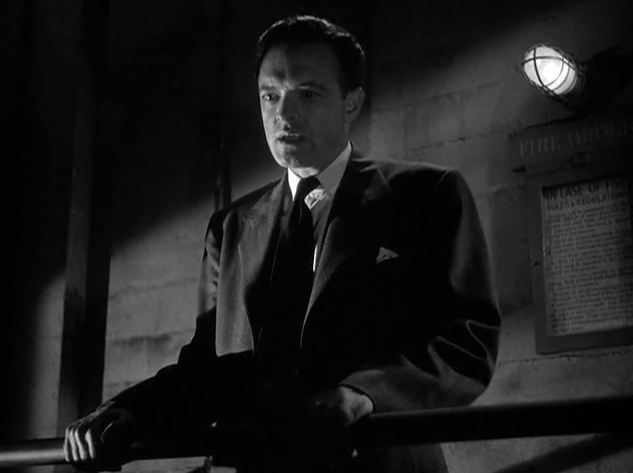  |
| Frank and Edith Enley. |
Neither his wife nor the rest of the community know Frank's dark secret. When he was in the POW camp, he alerted the Nazi camp commander of an escape attempt. He was rewarded with food and assured his comrades' lives would be spared. They weren't. The Nazis set a trap and slaughtered them in the tunnel they built - all but one, Joe Parkson, who faked death until he could crawl away.
 |
| Who reads about his "war hero" friend Frank in the paper. |
Frank never told his wife what really happened, nor that they moved from the east coast basically to get away from Parkson, who hates Enley for what he did.
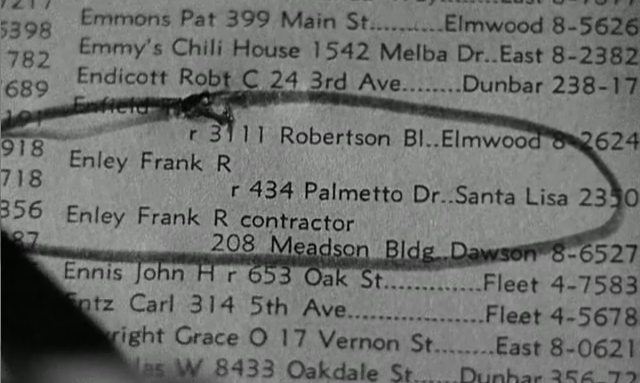 |
| Parkson finally tracks him down with the help of the war-hero article and the local phone book. |
This leads to Parkson doing the whole calling up the Enley residence and hanging up business.
 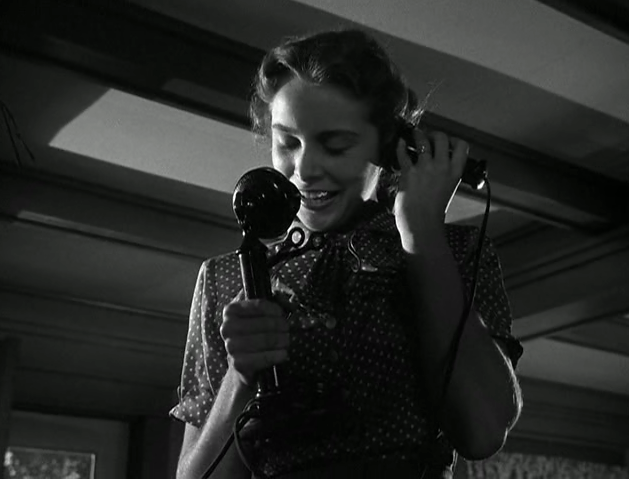 |
| Apparently, the Enleys never upgraded their phone after the war. Tangent: I miss phones. I would totally go back to the phone Janet Leigh is holding. Enough's enough, planet Earth. |
Not content to simply prank call, Joe follows Frank when he leaves for a fishing weekend at Redwood Lake.
I was genuinely surprised by Joe's readiness to kill here - he doesn't seem interested at all in confronting his former commanding officer, just straight-up assassinating him. Frank ends up taking a different route out of the cove and doesn't realize how close he came to death. He learns of Joe on his tail, though, and from this point on, things unravel.
Act of Violence is one of the first post-WW2 films to depict an unresolved trauma among veterans of the Great War Redux so recently ended. The specific plot details of Joe's and Frank's POW experience aside, it's an exploration of an anxiety a large portion of its 1948 audience knew all too well. It's an interesting title for those reasons - the "act of violence" isn't confined to Frank's actions at the POW camp. It's what was done to an entire generation of Americans.
Not to mention non-Americans, of course. Director Fred Zinnemann came to America in 1938 to escape the Nazis; his parents weren't so lucky. They delayed leaving, then couldn't, then were murdered in the camps. Whether this impacted his directorial choices or not, Act of Violence is steeped in Survivor's Guilt.
The relationship between Edith and Frank - and the myth-shattering intrusion of Joe on their marriage - is worth looking at.
  |
| At first, he's preoccupied with her not finding out. |
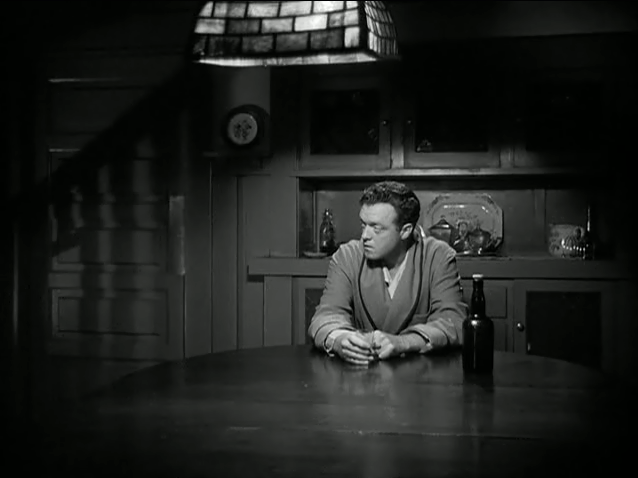 |
| Once she forces the issue, he makes up a story and skips town. |
  |
| Eventually she gets the whole truth from him, but he can't bear her knowing and skips out once again. |
  |
| Throughout it all, kudos to Janet Leigh, who really anchors the movie with her performance. |
Frank's descent into alcoholic despair is conveyed via a fantastic montage of skewed angles and long shadows, courtesy of:
 |
| Surtees has a helluva c.v. |
It is during this descent that Frank meets Pat, an aging prostitute played by Mary Astor. She takes somewhat incredulous pity on him and introduces him to someone who can make his problems go away for a mere eight to ten grand.
As mentioned at Classic Film Review, "Astor turns in a weighty
supporting performance as Pam, bringing a palpable sadness to the role. When she finds out what Frank's done, what
he's running from, helping him is just another in a long series of failures for her."
 |
| Things unfold inexorably. |
 |
| I'll refrain from spoiling the end. |
What a film. On one hand it's the prototypical film noir, where the protagonist is caught in a downward spiral of effects from some causal action from the past. On the other, though, it stands apart - there's no real femme fatale, unless you count Mary Astor, which doesn't quite work, and there's no voice-over at all.
  |
| This is especially noticeable at the beginning, during Joe's cross-country bus journey to California. |
 |
| I kept expecting some kind of "Here's what it is, see" voiceover from Robert Ryan. |
 |
| Instead, he just looks weary and driven. |
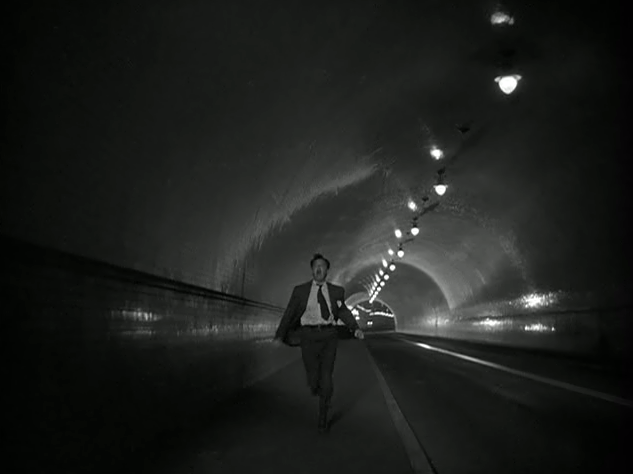 |
| The only voice-over comes later, when Joe is flipping out and remembering both his complicity in hiring the hit man and the German loudspeakers. Very effective. |
 |
| While we're here, when Joe lands in California, he's prevented from limping across the street by a passing parade of war heroes. |
A very intelligent film, beautifully performed, and beautiful to look at.
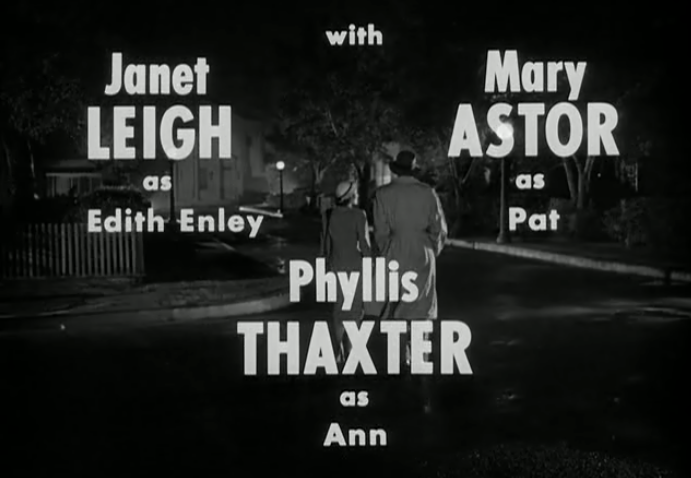 |
| with a |
 |
| and was |








































